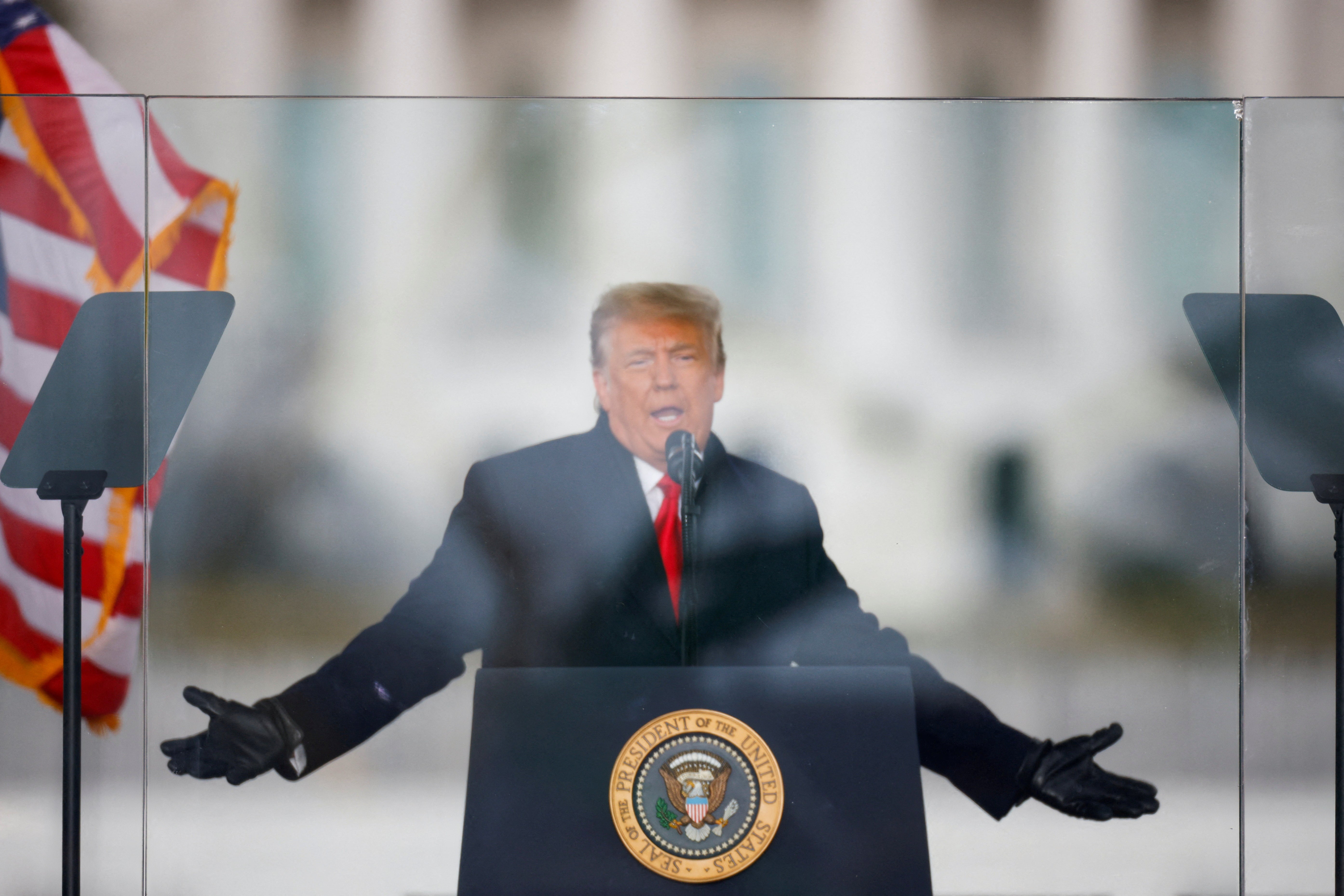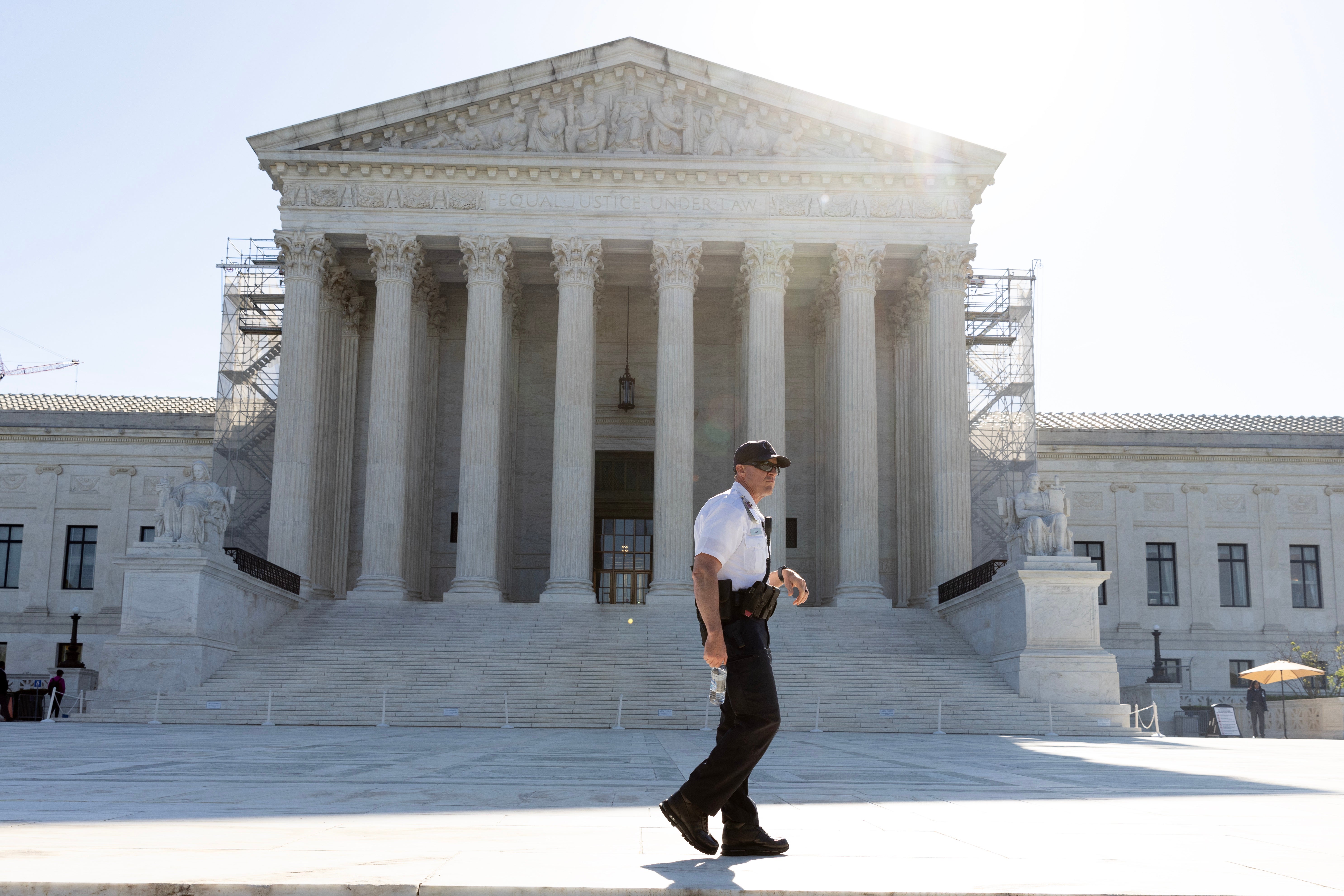How Supreme Court delays gave Trump what he wants before 2024 elections
Legal scholars and judges have slammed Trump’s ‘immunity’ defence as absurd and dangerous. No matter how they rule, justices already gave the Republican nominee a boost, Alex Woodward writes


On 1 August, 2023, Donald Trump was federally indicted for his failed efforts to overturn the results of the 2020 presidential election.
Two months later, his attorneys argued that the charges should be tossed out, citing his presidential “immunity” from prosecution for crimes allegedly committed while he was in office.
A growing body of legal experts and constitutional scholars have repeatedly warned that the defence is absurd, far-reaching, and dangerous to democracy.
By December, federal prosecutors were asking the US Supreme Court to step in and settle the question once and for all, hoping to keep the case moving swiftly to prevent the possibility of a criminal trial against president-elect Trump – or the potential for a President Trump to find a way to throw out the case altogether if he is sworn back into office in 2025.
The nation’s highest court denied that request. The justices didn’t agree to look at the case until 28 February. But rather than affirm lower-court decisions that rejected Mr Trump’s “immunity” claim, the justices scheduled oral arguments on that question on 25 April – the last day of arguments for the court’s 2023-2024 session. A decision isn’t expected until this summer.
The former president’s legal strategy largely boils down to delaying, by any means necessary, the growing pile of criminal and civil threats against him in courtrooms across the country.
Supreme Court justices delivered him a key victory. The months of debate and delays – culminating in the Supreme Court slow walking one of the most important tests of presidential power in American history – have all but ensured that voters will not see a verdict in a trial to determine if he unlawfully conspired to overturn an election before they cast their ballots in the next one.
“The substance of this case is nothing less than a fork in the road on whether we will continue to have democracy, a constitutional republic, with checks and balances that have characterised the presidency, or whether we will embark on the road to autocracy,” according to Norm Eisen, a senior fellow with the Brookings Institution who served as co-counsel for the House Judiciary Committee during Mr Trump’s first impeachment.
A federal judge and a federal appeals court have already shot down Mr Trump’s “immunity” defence. A panel of appellate court judges unanimously wrote that “citizen Trump” is not shielded by presidential immunity, and that his “alleged efforts to remain in power despite losing the 2020 election were, if proven, an unprecedented assault on the structure of our government.”
Mr Trump went to the Supreme Court to pause that ruling as he mulled an appeal. Federal prosecutors asked the justices to let those lower-court decisions stand, and for the case to keep moving – US District Judge Tanya Chutkan has effectively ground the election interference case to a halt until the “immunity” question is answered.
On 12 February, Mr Trump asked the court to pause the lower-court ruling. Special counsel Jack Smith’s office asked justices to deny that request, or at least take up the case on a rapidly expedited schedule with oral arguments on 4 March.
Instead, the Supreme Court let those requests languish – for more than two weeks. Justices could have issued an order at any point within that time.
“There was not a reason in the world for the Supreme Court to have taken this case. Not one reason,” according to former federal appeals court judge J Michael Luttig.
“The fact that the court has now taken this case makes it exceedingly unlikely that [Mr Trump] will be tried for his offences on January 6 before the election,” he told reporters on 24 April.
“Of course the court can decide cases quickly when it has to. It could hear this case tomorrow and could fairly easily produce an opinion one week later. That is not going to happen. The court has all but told us and assured us that that will not happen,” he said. “It was an extraordinary statement by the court to set the argument in this case for two months from the date it granted the case.”

Mr Trump was granted 88 days to prepare for the case under Judge Chutkan’s timetable for the parties. If the trial clock starts ticking again after the Supreme Court issues a ruling on the immunity question, which might not arrive until the end of term in June or July, a trial isn’t likely until October, or one month before Election Day.
“The Supreme Court knows and knew all of this,” Mr Luttig said. “The Supreme Court has knowingly and deliberately put Jack Smith in the most precarious position possible.”
Supreme Court justices issued a decision in the landmark Bush v Gore case within one day after oral arguments. The 1971 Pentagon papers case was settled within a week. A decision in the Watergate case involving President Richard Nixon was reached within 16 days. The court even worked relatively swiftly to collect briefs and hear arguments in another case involving Mr Trump this year – a decision was reached within one month after arguments in a case asking whether he should be kicked off Colorado ballots for “engaging” in insurrection.
The case of Trump v United States has been on the docket for nearly two months.
“Justices may think they will look like reasonable jurists if they take their time,” according to Harvard University constitutional law scholar Laurence Tribe. Instead, they look as if “they’re protecting their agenda,” he said.

On Feb 13 2021, the day Mr Trump was acquitted a second time after he was impeached in the House of Representatives, Republican Senator Mitch McConnell said in a speech on the Senate floor that “we have a criminal justice system in this country, we have civil litigation, and former presidents are not immune from being [held] accountable by either one.”
“Here we are more than three years later about to have that trial and the Supreme Court stepped in to prevent that from happening,” according to political strategist Mike Podhorzer.
Mr Trump, meanwhile, won’t be attending the Supreme Court hearing. He is on trial in another courtroom, in New York City, for a scheme that Manhattan prosecutors have argued was his earliest attempt to interfere with an American election.
His attorneys in that case pleaded with the judge to let him skip out of the trial so he can watch the proceedings in Washington DC.
“He’s required to be here,” New York Justice Juan Merchan told his attorneys on 15 April. “He’s not required to be at the Supreme Court.”
Join our commenting forum
Join thought-provoking conversations, follow other Independent readers and see their replies
Comments
Bookmark popover
Removed from bookmarks